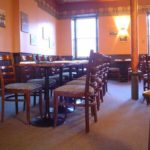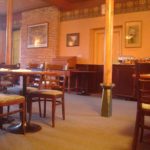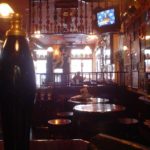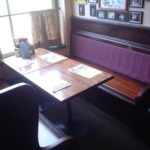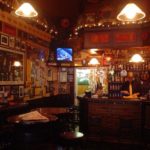This is a very pleasant pastime this comparison of Belgians which is already into its third month. To say pacing is required is more than stating the obvious. These are big big beers with two of today’s selection coming in at over 10%. Good reason to have a get together.
Just as one observation on the photos I like to add to these posts, this was a very hard grouping to shoot as the paint on the Terrible by Unibroue is actually mirroring silver while the bottle is black glass. There was no way around using the flash, which I do not think provides you with the best photo of glass. So that being noted, here are my notes on the three examples of this style I have gathered:
Gulden Draak: A true Belgian, 10.5% 330 ml from a variety six-pack from Van Steenberge sold during the pre-Yule rush by the LCBO. The first thing you notice is the malty heat from the dark candi sugar – tastes of fig, pepper and prune. Also, it is surprisingly juicy very nice, grapy and there is a bit of milk chocolate truffle in the centre. Unlike a dubble there is no burlap or oaken notes or orange peel and spice. This is all about the malt, like a barleywine stripped of the English hops. The yeast is prominant as well, butter pastry and cream. It is all like a tart of prunes with whipping cream dolloped on top. The hops balance rather than cut the malt, providing structure but it is all about the malt. Advocates say yeah.
Dogfish Raison D’Etre: An entry from Dogfish Head of Delaware in the USA, this beer is 8% and 12 oz. sold by the single bottle at the LCBO. This one is lighter and somewhat reliant on the addition of grape juice to the beer but the result is surprisingly similar to the Gulden Draak. The yeast is bready rather than pie crusty and the hops are even more subdued. The rich core is more about dried apple more than prune. With its fairly soft water profile and relative simplicity it is still very pleasant. I am coming to think that these beers are also like Scotch heavy ales without the smoke of the barley and that northern strian of ale yeast. Soft blankets of malt. Some advocates disappprove citing poor head and thinness yet it was awarded American Beer of the Year 2000. Can’t we all just get along?
Unibroue Terrible: Canada’s entry is again fantastic – lush, juicy and more-ish. Amazingly, at 10.5%, there is no heat. I am recalling that Terrible is less complex as well than the Unibroue’s Trois Pistoles, their other Belgian dark strong ale. [By the way – imagine a brewer in North America selling two Belgian dark strong ales. I hope Sleeman knows what it bought.] There is some orange but it is more as juice than peel. Big malt but the least signs of dark candi sugar than the Gulden Draak or Dogfish. A little figgy, a little leathery, smooth. Some dried cocoa like a can of powder for baking – dusty and light. Perhaps a recollection of black cherry. The yeast is milky rather than butter or cream – not rich and it adds to the juiciness. Hops again are structural rather than bitter. BAers approve as all but one.
I see that this style is just all about the capacity of belgian pale malt if concentrated. These are beer‘s beers. This is what beer imagines it could be if it only put its mind to it, think of the big picture.


 Today’s
Today’s 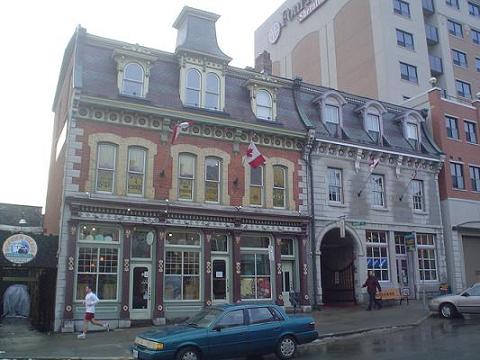
 I have been going to the Kingston Brew Pub for more than a decade. When we lived three hours drive away, during LBK (Life Before Kids) we planned long weekends around meals there. Now I work a block away and am happy because of it, even to pop in for the lunch special or a cup of coffee mid-afternoon. The
I have been going to the Kingston Brew Pub for more than a decade. When we lived three hours drive away, during LBK (Life Before Kids) we planned long weekends around meals there. Now I work a block away and am happy because of it, even to pop in for the lunch special or a cup of coffee mid-afternoon. The 
